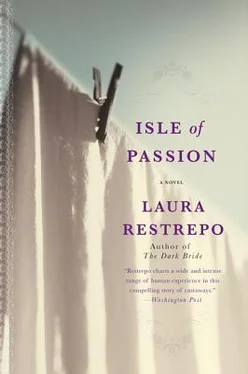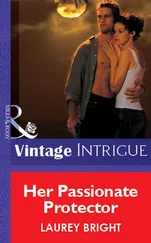Mrs. Carlota Vignon Arnaud
is pleased to inform you of the forthcoming
marriage of her son Ramón
and Miss Alicia Rovira
According to the Arnauds’ biographers (their granddaughter, María Teresa Arnaud Guzmán, and General Francisco Urquizo), the wedding took place on June 24. However, the wedding invitation contradicts this fact because it says “… has the pleasure of inviting you to the ecclesiastical ceremony, which will take place on the twenty-fourth of the present month,” and it is dated “Orizaba, July 1908.” They were married then in July, not June. This is not the first time that the calendar of their lives gets muddled, and it will not be the last in which time plays tricks on them.
In his manuscript “The Orizaba I Remember,” Don Antonio Díaz Meléndez writes that after the religious ceremony “they headed for the Hotel de Francia, where the customary wedding hot chocolate was served.”
I have come to learn more about this hotel, which still exists. At that time, I am told, it was the most prestigious social center of the city. Today it is in ruins. The sign that presents it as the Grand Hotel de France has several letters missing, the tiles that cover the walls are falling off, and its fifty-nine rooms are indefinitely closed “for repairs.” From its times of splendor, as a memento, there is one guest remaining who suffers from all sorts of minor ailments. A Spaniard who came to Mexico fleeing from the war, he has stayed here ever since, and when the hotel was closed, the management could not get rid of him. He still walks around its balconies, now without railings, and its fountains, dry for some time, while he curses the humidity and his arthritis.
However, in spite of the passing of time and the extensive dilapidation of the Grand Hotel de France, one can still perceive traces of Ramón and Alicia’s wedding. They remain imprinted in the spacious hall that was once the dining room, in the midst of the scaffolding that holds the now worm-eaten beams, in the green spots that are taking over the walls, and in whatever remains of the Art Nouveau stained-glass windows, badly in need of restoration. Whenever the wind blows in, the ghosts of that wedding reception seem to be floating around again: white dust clouds come up from the rubble that very well could have been rice showers, icing from the cake, or the bride’s veil.
But no. It seems there is some error here, too. In spite of Don Antonio’s assertion, it is improbable that their wedding breakfast was held at the hotel. Their granddaughter, for example, says otherwise in her book. She insists that it was held at the home of Alicia’s parents.
Seeing Orizaba the way it is now, not as it was then, Ramón and Alicia’s bucolic romance seems inconceivable, unreal. I try to visualize them crossing these streets, now riddled with pollution and congested with cars, and stopping on the same sidewalks — narrow, devoid of trees, with open sewers — to greet friends, pay their respects to acquaintances, and smile at strangers. I attempt, but without success, to picture them having tea, solemn and a little smug, in the resounding mediocrity of the two-star Hotel Alvear, recently restored, with its beveled-mirrored lobby, its synthetic plush furniture, and the sign that reads “We accept Diner’s Club and American Express.”
Pale and old-fashioned Alicia and Ramón, in the mild attempt at a city that is Orizaba today. .. I don’t even want to imagine them — with the Avenida Oriente buses roaring past — discovering in front of TE-CA, the “First Tools Boutique,” the modest monument donated five years ago by the Lions Club.
The top part of the monument has the bronze bust of a Mexican officer wearing a Prussian helmet, and on its side is a pathetic little plaque in which the same officer is represented, now at full length, holding by the hand a woman with three children. The five of them are on a wild ocean shore under stormy clouds, all barefoot, their clothes in rags. Below this, on a smaller plaque, they would be aghast to read their own names and to learn about their fatal destiny, just as it appears on the inscription:
Captain Ramón Arnaud Vignon, who ,
accompanied by his heroic wife, Alicia Rovira ,
a good model of the virtues of Mexican women ,
maintained Mexico’s sovereignty on the Isle of Passion
until his death on October 7, 1914 .

H. P. PERRIL, CAPTAIN of the American gunboat Yorktown , had never ever had anything to do with Clipperton. The place did not intrigue him. Quite the contrary, it inspired in him a deep lack of interest and even an uneasy feeling. Against his will, however, that isle was fated to acquire great importance for him. En route from his naval base in California, and due to a whim of fate, he not only arrived there but did so at the right time. Not a moment too soon, not a moment too late.
He wished to leave a record in his own words of that story, which he considered unique in his long experience at sea and, as he commented to his family after returning to California, he had the impression of “carrying Robinson Crusoe tied to the mast.” He meant that the misfortunes of this shipwrecked legendary figure seemed like only the first chapter of those suffered by the Clipperton castaways, which he had been able to see with his own eyes.
When the captain finished writing, he had spent the whole night of July 18, 1917, telling the recent events in exact detail. It had been his lot to become witness and actor, both judge and participant. He stayed awake in his cabin until dawn, writing a long letter to his wife, Charlotte. Once in a while he would pause, absorbed in the metallic coldness of the moon reflecting on the waters. He felt he had to control the turmoil of the day’s memories so that he would not allow them to trample his measured and precise prose. “Tonight,” he wrote to his wife, “I have something really interesting to tell you.”
Twenty-four hours before, he had been sure that on his tedious voyage through Mexican waters only a few routine entries would be made in the ship’s log. However, strange things happened. So strange that they touched the heart of the unflappable Captain Perril, and made his hand tremble as he wrote to Charlotte: “It is something I will remember as long as I live. I hope to be able to tell you about it in a way that you and the children can also appreciate.”
He wanted to tell his wife the story in every minute detail, but begged her not to read it in haste, because: “In order to develop it in the proper chronological order, I am going to begin with its less important aspects.” He did not wish to render chaotic a story already confusing in itself, so he at first avoided broaching the heart of the matter. That would have to wait until later, and he was counting on her patience to last.

ALICIA GLANCED AT her reflection in the porthole and did not like what she saw. Two days before, when she came on board, her long brown hair was piled high on her head, a hairpiece inside a horizontal curl that framed her face. It was an old-fashioned coiffure, rather too adult for her, that clashed with her girlish face, though she thought otherwise and lamented that the wind had undone it. Her hair fell on her shoulders, disorderly and sticky with sea spray. Dark shadows under her eyes, like the ones she had when she was sick with German measles, darkened her luminous complexion. And her small, perfect features appeared enlarged and distorted in the concave glass of the porthole.
Читать дальше













